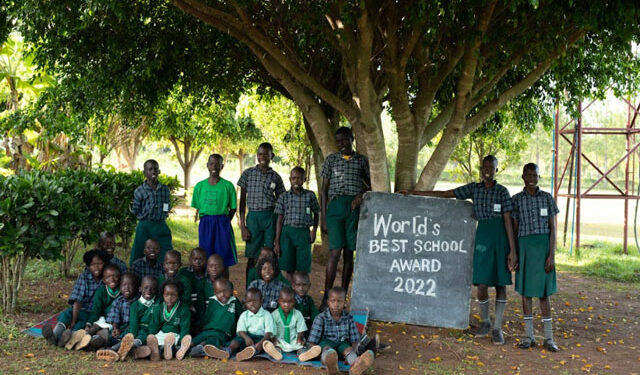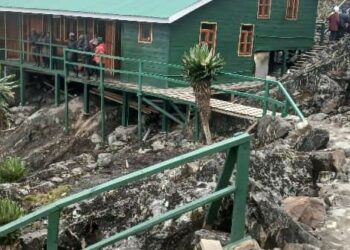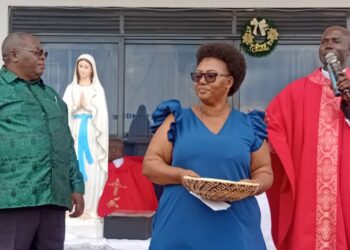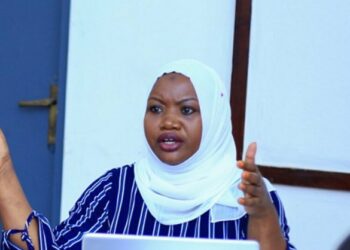Ugandan school Project Shelter Wakadogo has faced its fair share of challenges ranging from civil war, to Covid lockdowns and rural poverty, but this has not stood in the way of teachers determined to give learners the best future possible. And the school is now being recognised among the world’s best, and is vying for the T4 Education World’s Best School prize, in the Overcoming Adversity category.
Few children know adversity like those of Gulu District in Uganda, where two decades of civil war, including acts of cruelty perpetrated against children by the Lord’s Resistance Army, tore the region apart.
After the end of the war, the community continued fighting, only this time it was for safe, quality schooling for their children.
Co-founder Farah Williamson says, ‘We were just university students when we co-founded Wakadogo 17 years ago. We didn’t have a lot of experience but we knew that if we listened and responded to the needs of the community we wouldn’t go too far wrong.”
The buy-in of the community has been critical to the school’s success and the founding team implemented only what they could, in stages. The school opened with just four classrooms and 60 learners aged 3-6 years old. There was nevertheless proper sanitation with a flushing toilet block and clean borehole water. In addition, a morning porridge programme ensured that these children, living with great hunger, received at least one meal per day.
Today the school educates 477 children and has one of the highest retention rates in the country. For most of them, Wakadogo represents a second home providing a feeding and healthcare scheme, and an education that will go far in breaking the crippling cycle of poverty. An extra-curricular programme of sport and music further enriches the children who are involved in the day to day running of the school. The head boy and head girl organise meetings every month with support from senior teachers, and this contributes to the low attrition rate.
Says Andrea Charbonneau, another of the school’s co-founders, “Against all odds, children fought to go to school during the war and post-conflict. The community prioritised education because of the vital role it plays in helping to heal and rebuild. Every day is filled with many challenges as the community continues to overcome adversity.”
As if the recent traumatic past that haunts many of the teachers wasn’t enough, when COVID hit, Uganda imposed one of the longest lockdowns.
One teacher recalls, “The last time schools closed was during the LRA insurgency, but even during the war between 11 and 3pm we could go to school. During COVID this wasn’t even an option.”
Another teacher who saw both her parents abducted by rebels, says, “We thought northern Uganda had stabilised and then 2020 happened…it triggered so many memories from the war. We were locked up and confined again and that re-traumatised us.”
Describing his childhood, another Wakadogo teacher said, “For years I slept in the bush with my brothers. We would leave at 5pm and wait until it was safe to return around 9am. We would go home and get our books and go to school. At 3pm we would return home to prepare some food before going back into the bush for safety. There were about 100 children in the class and if you learned one subject in a day, you felt lucky.”
With the imposition of lockdown, it was quickly determined that online schooling would not be possible for the children of Wakadogo. Across Uganda, only 2% of the population has access to personal computers and less than 9% of the rural population has access to the internet.
Instead, Wakagodo started a series of home-schooling lessons, eventually totalling 36 000 sessions, held in homesteads and compounds to keep students on track with their learning.
“We left a permanent footprint in the village. Just us being visible and checking on the kids helped to keep them safe, especially against early marriage and pregnancy. The PTA helped get kids to home learning points. One community member brought black boards and made benches so that three learning streams could take place at once” says one of the teachers.
Charles Odong Kigundi, head teacher at Wakadogo says: “It is a great honour to be recognised for the work we have done these past 17 years…our greatest desire is to see more children receive quality education…”
Nilmin Williamson, another co-founder and Trustee of Wakadogo adds, “I was born in Uganda and seeing how this education project has grown and developed is like a dream come true.”
If Wakadogo walks away with the $50 000 prize, they plan to build a computer lab consisting of 50 laptops and 50 tablets, and solar panels to power these. The lab will also benefit the community- as the school intends to open it up to surrounding schools, families and community members to use after school, on weekends and during school holidays. An ICT teacher will be hired to provide training and support.
Do you have a story in your community or an opinion to share with us: Email us at editorial@watchdoguganda.com













